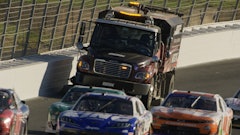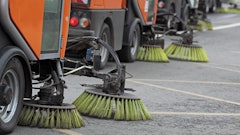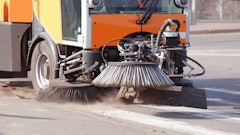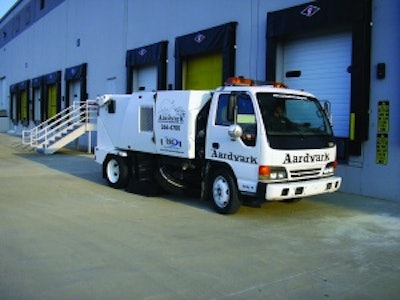
Unlike other pavement maintenance businesses which involve putting something down on a pavement, the sweeping business involves removing something from a pavement. So where other businesses can factor the amount and cost of materials in their bids and budgets, contract sweepers can't do that.
Carl Barton understands that, which is why the current North American Power Sweeping Association president guides, tracks, and drives his Memphis, TN, sweeping business on a minute-by-minute basis. And while virtually all sweeping companies track their time in some way or another - even broadly determining how many accounts a truck can handle on a route is managing the minutes - Barton's Aardvark Sweeping Service pays close attention to the time, knowing that effective use of driver minutes leads to profitability and growth.
"When I bought my first truck I read the literature and it said that to be successful you need to spend 75% of the time behind the wheel," Barton says. "That's 45 minutes of billable time every hour so that was my initial target."
As he got more involved with the business he started paying very close attention to the numbers - all the numbers. He tracked truck by truck, driver by driver, property by property, eventually coming up with both a cost per truck and a cost per driver. Eventually Barton figured out how much it was costing Aardvark to sweep each parking lot, and he learned something.
"We discovered that the trucks and men bringing in a decent profit were the drivers who were doing at least 420 minutes of sweeping per night. So we tried to replicate that throughout the company."
And it's worked. Though business is down a little this year as a result of reduced sweep frequency (as opposed to lost clients or price cuts) Barton says Aardvark Sweeping Service has remained "true to ourselves."
"We're a quality and service-oriented company, and when all is said and done I'd rather be a small quality and service-oriented company than a business that sells only price and doesn't provide a quality job or service the customer," Barton says. "We go way out of our way to make sure the customer gets what he pays for."
Retail & industrial sweeping
Barton started Aardvark Sweeping Service in 1996 following a career in the cola business. It's a story he's told often and it never fails to elicit a smile. "A guy I worked with at Pepsi was having a bad day and we were sitting around after work and he said 'If I am going to work at Pepsi all my life I'd rather grab a broom and sweep the parking lot.' It got me thinking," Barton says. After two months of what he says was "doing his due diligence" including talking with potential customers and watching other sweepers, he was ready to start his own sweeping company.
"I went out at night and watched some lots being swept, and I got to this one parking lot where a young guy pulled in with his sweeper and pulled over to the side, jumped out of the truck with his skateboard, skated around the lot for about 10 minutes, then got in the truck and drove away," Barton says. "I knew I didn't know much about sweeping but I knew I could do better than that."
He started Aardvark with the Schwarze 343 that he still uses (though only supervisors or managers are allowed to drive it) and now runs 18 sweeper trucks, employing between 30 and 40 people depending on the time of year. Most of the sweepers are Schwarze units, the bread-and-butter sweepers being the Schwarze 347 machines, but Aardvark also runs two Tymco 435s for the construction sweeping side of the business, as well as a Nite-Hawk and a Silent Knight.
Virtually all of Aardvark's work is on parking lots of one kind or another, but where some contract sweepers track their business by specific customer type, Aardvark divides its business into two groups: Retail (64%) and industrial (or nonretail, 34%) which includes warehouses, office complexes, industrial parks and construction site cleanup. Aardvark Sweeping used to sweep within a 50-mile radius of Memphis but has recently cut back to 30 miles as a result of low density, fuel costs, and costly and unproductive time on the road.
Oh, and the guy who started the whole conversation at Pepsi, Ronnie Wynn? He's Aardvark Sweeping's operations manager, helping run the business along with Connie Barton, vice president, and Darrell Allen, day duty manager.
400 minutes?and counting
Barton's own tracking showed that 45 billable minutes an hour was a little on the high side as his most-profitable drivers were averaging 420 minutes a shift. He thought that while 420 minutes a night is reachable for the best drivers he would target a number that even more drivers could reach, that would still provide the level of production he needed to be profitable, and that would enable drivers to feel successful when they surpassed it.
So he set the bar at 400 minutes per shift. Because that number would be very difficult to reach in an 8-hour shift Aardvark operates with 10-hour shifts with drivers working a minimum of four shifts per week. So the 10-hour shifts means drivers are responsible for 40 minutes per hour of "billable activity" - meaning time behind the wheel while the vehicle is sweeping. Billable activity does not include any work done outside the unit, such as blowing, nor does it include travel time.
"We came up with the 400 minutes target by working off the idea that there's always downtime in everything you do," Barton says. "For example a certain amount of time is lost getting out of the yard and getting to that first job. By reducing the number of shifts some of that downtime is eliminated. The sad part is if I run a half route I have the same amount of downtime associated with a full route."
He says he would like to see all drivers average at least 420 minutes a night because he thinks it's a reachable number. "But we allow some room in there so we set it at 400 minutes to give them something to shoot for."
All this number crunching lead eventually to the creation of Aardvark Sweeping's 400 Club. All Aardvark Sweeping drivers are paid a wage based on 40 hours of work. Once a driver averages at least 400 minutes per shift per month he becomes a member of the 400 Club, making him eligible for additional work and for bonuses. Currently 11 of the contractor's 25 drivers are 400 Club members.
"When we hire people we guarantee them four shifts a week, or 40 hours. After they're trained and running on their own and productive they can work their way into the 400 Club, which means they sweep for an average of 400 minutes per night per month," Barton says. "One night doesn't make you a hero and one night doesn't make you a zero. We're looking for the average and that's why we look at their productivity over a month."
But he makes it clear that the 400 minutes extends over the whole month and there are no excuses. "If for some reason you can't work and don't sweep, that goes against your 400 minutes," he says. "Even if you are sick and can't work that goes against your 400 minutes."
Barton says the whole idea behind the 400 Club is to reward drivers who are following safety, quality and production guidelines.
"We stress 400 minutes, but that's not our main priority. We stress safety, then quality, and then production. We will never sacrifice safety or quality for production," he says. "I'm a greedy man and I want all three, but if you can only give me two I want safety and quality."
Qualifying for overtime
Barton says there are two primary benefits to 400 Club membership. The first is the opportunity for additional work. Drivers in the 400 Club can move into a fifth shift of sweeping, which pays them time-and-a-half for 10 more hours. They also can add a sixth shift of sweeping (also at time-and-a-half) if they want to.
"Once you're in there you have the first chance at overtime. No one else gets a chance at it until all 400 Club members pass it up," Barton says. "We use overtime as an incentive, not as a punishment, and it's amazing how well it works. They will knock down walls to maintain their membership in the 400 Club so they can have access to that fifth and sixth day.
"Everyone has four routes and four days, so if they only want four nights they can work four and have three nights off. But they can get a fifth night if they get into the 400 Club - and at time-and-a-half they all want it."
He says the drivers who are not in the club are in training to get there, and they can remain an employee at four days a week. "If we a get a 'Steady Eddie' producer who is just locked in at 300 minutes a shift - and we do get those people - they usually get worked out of the company. But they have had an opportunity to improve themselves if they want to."
To contractors who scoff at the idea of building a system that actually creates overtime expenses for the company Barton says the benefits far outweigh any disadvantages - including any additional costs.
"Assume you're paying $10 an hour to a driver. At 40 hours that's $400. Another 10 hours at $15 an hour is $150, so the whole five days costs us $550. When you average that out over the week it only costs me an additional $1 an hour on all hours for the week."
A small price when Barton considers what this 400 Club and overtime opportunities have done for the business. "I don't mind paying more money to them if they're doing more than what we ask of them," he says.
400 Club earns bonuses
In addition to the opportunity for more work at a higher rate, 400 Club drivers have an opportunity to earn a monthly bonus based initially off the number of minutes swept. Bonus qualification starts at a minimum of 400 minutes, and once drivers qualify Aardvark factors in job quality to determine how much of his bonus each driver will receive.
Barton explains there are only three job quality grades a driver can receive: A, B, or F. Drivers who receive an A grade receive 100% of their bonus; drivers who receive a B receive 80% of their bonus; drivers who receive an F receive no credit - zero minutes - for the property on which they received the F rating. Subtracting those minutes from the total minutes they swept for the month can have a serious impact on their overall bonus and could conceivably knock them out of the 400 Club at least temporarily. Too many Bs also can knock a driver out of the club.
Barton says the company's supervisors are essential to the success of the program. The retail division, for example, is divided into East and West and each has its own supervisor who checks the drivers' work.
"The managers or working supervisors are diligent about their checks because in addition to their own work they also are eligible for a bonus based on the work of the people they supervise.
"If a supervisor finds a problem and fixes it, his division keeps the minutes, which is good for him, but the driver loses those minutes, which is bad for him," Barton says. "If the driver finds the problem and fixes it himself there is no penalty for anyone because that's what we want, the drivers to be responsible for their work. Any minutes we can pick up and not have to pay to send a truck back out are obviously profitable minutes."
But if the client finds the problem?
"Then everyone - the driver, the supervisor, and the company itself - gets stripped of those minutes," Barton says.
Choice of routes
Still another benefit to 400 Club members is an opportunity to select the route and shift they prefer. Aardvark run's three shifts each day: 10 p.m. to 8 a.m. (retail) and 6 p.m. to 4 a.m. and 5 a.m. to 3 p.m. (both nonretail).
400 Club members get first choice when a shift opening occurs, and Barton says most work to get into the nonretail day shift.
"Not only are the hours during the day but sweeping nonretail properties is more methodical and drivers need to sweep at a slower speed because each of those properties is swept less frequently," Barton says. "Sweeping on retail properties moves at a faster pace."
He says drivers are trained only on retail sweeping until they move to a nonretail route.
"It's just easier to train them to perform well on one type of work," Barton says. "One is more methodical and the other is more speed, and it's hard to teach a guy to sweep at 4 mph on this property and 9 mph on that property and have him sweep both types of property effectively. The problem with mixing them is neither customer gets what he needs and both end up with a middle ground."
Barton says the progression of jobs at Aardvark now starts with porter, which is only on four retail routes. Aardvark started the "porter program" four years ago and it functions to speed parking lot sweeping on retail jobs and also to act as an inexpensive and less-risky screening phase for new employees.
The program, which now includes four porters and four pickup trucks, is used on four dense sweeping routes where the work is heavy enough and the properties condensed enough to justify the porter. Under this program new employees are hired as porters and are given a truck and sent out on their own with a route sheet to hand pick grassy areas and gardens, change bags in trash cans, and do other similar types of work that a sweeper driver would otherwise have to stop and exit his truck to do - all before the sweeper gets to the property.
Porters move to retail drivers, and retail drivers graduate up to industrial routes. "That's where all my senior drivers are," Barton says. "You really have to work your way up to industrial where there's more overtime and there are day shifts involved."
Barton credits the 400 Club with having a major impact on the company's success because it encourages drivers to become more productive, to work smarter, and to be more quality oriented.
"The only way you can get into the 400 Club and stay there is not to work harder but to work smarter," Barton says. "The problem with retail sweeping is you have a time limit because the parking lots start to fill up in the morning so you have to work smarter to get the job done right and on time. Just working longer won't do it. Wasting 10 minutes on a property is not a lot, but if you have eight properties to sweep that's 80 minutes and then you are dealing with some real dollar and productivity issues, and that always leads to quality issues.
"You don't have to be Superman with a backpack strapped on and running down the street to reach the 400 minutes, you just have to work smart," he says.




![Pavement Awards 2025[main]](https://img.forconstructionpros.com/files/base/acbm/fcp/image/2024/05/PavementAwards_2025_main_.665883e4276e8.png?auto=format%2Ccompress&bg=fff&fill-color=fff&fit=fill&h=100&q=70&w=100)
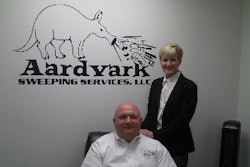
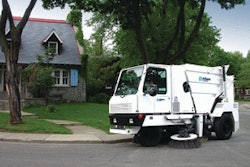
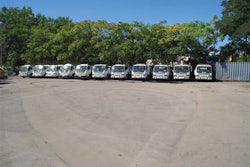
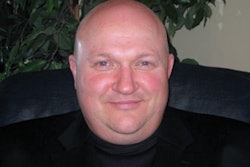

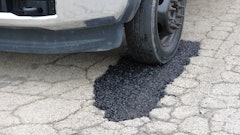

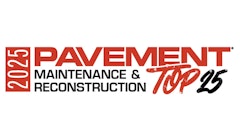
![Pavement Awards 2025[main]](https://img.forconstructionpros.com/files/base/acbm/fcp/image/2024/05/PavementAwards_2025_main_.665883e4276e8.png?ar=16%3A9&auto=format%2Ccompress&bg=fff&fill-color=fff&fit=fill&h=135&q=70&w=240)



